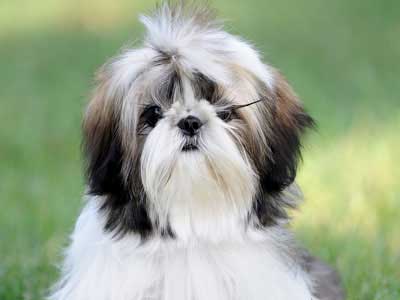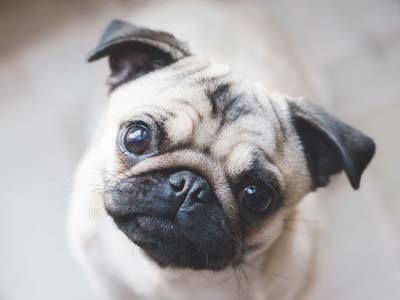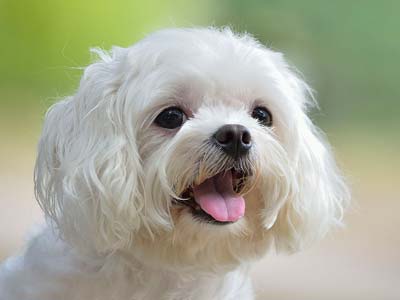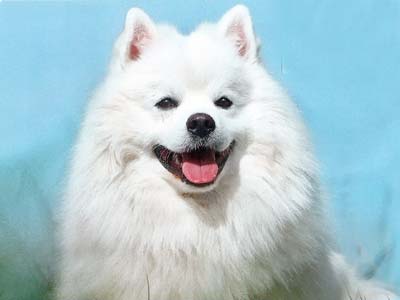Pekingese
Breed Information |
|
|---|---|
| Popularity |
2022: #96 2021: #94 2020: #95 2019: #83 2018: #92 2017: #88 2016: #93 2015: #80 |
| Name | Pekingese |
| Other names | Peking Lion Dog, Lion Dog, Chinese Spaniel, Pelchie Dog, Peking Palasthund, Peke |
| Origin |  China China |
| Breed Group |
Toy (AKC:1906) Companion Breeds (UKC) |
| Size | Smallest |
| Type | Purebred |
| Life span | 13-15 years |
| Temperament |
Affectionate Aggressive Good-natured Intelligent Opinionated Stubborn |
| Height | 6-9 inches (30.4-45 cm) |
| Weight | 8-10 pounds (3.6-4.5 kg) |
| Colors |
Black Cream Fawn Gray Red White |
| Litter Size | 2-4 puppies |
| Puppy Prices |
Average $1500 - $3000 USD On average, a Pekingese puppy can cost anywhere from $1,000 to $1,500 in the USA, but dogs that have an AKC champion bloodline will be in the $3,000 to $3,500 price range. |
Breed Characteristics |
|
|---|---|
| Adaptability |
5 stars |
| Apartment Friendly |
5 stars Pekingese are good for apartment life. They are relatively inactive indoors and will do okay without a yard. |
| Barking Tendencies |
4 stars Frequent |
| Cat Friendly |
5 stars |
| Child Friendly |
1 stars Not Good with Kids: In isolation, this dog breed might not be the best option for kids. However, to mitigate the risks, have the puppy grow up with kids and provide it with plenty of pleasant and relaxed experiences with them. This breed is also very friendly toward other pets and shy toward strangers. |
| Dog Friendly |
3 stars |
| Exercise Needs |
1 stars The Pekingese has very little need for exercise, making it especially suited for life in an apartment. The Pekingese enjoys a leisurely stroll outside, but is highly prone to heat exposure and should never be left outside or over exercised in hot weather. |
| Grooming |
5 stars High Maintenance: The Pekingese requires a great deal of maintenance, including daily brushing, particularly on the belly and between the legs, and grooming every few months or when dirty. Powdering or dry shampooing is also required. Excessive hair around the pads of the feet must be trimmed. |
| Health Issues |
4 stars Hypoallergenic: NoPekingese tend to catch colds very easily. Very difficult births. Prone to herniated disks and dislocated kneecaps. Trichaiasis (lashes growing inwards toward the eyeballs). Breathing problems and heart problems are also common. |
| Intelligence |
3 stars Ranking: #73 Full Ranking List |
| Playfulness |
2 stars |
| Shedding Level |
3 stars Moderate Shedding: Expect this dog to shed regularly. Be prepared to vacuum often. Brushing will reduce shedding as well as make the coat softer and cleaner. |
| Stranger Friendly |
3 stars |
| Trainability |
2 stars Difficult Training: A Pekingese considers itself to be its own boss (if not the king of the house), but it can be trained through positive reinforcement. Patience is required when training the Pekingese. |
| Watchdog Ability |
3 stars |
Pekingese Names |
||
|---|---|---|
| Rank | Boy Names | Girl Names |
| 01 | Buddy | Sadie |
| 02 | Charlie | Daisy |
| 03 | Cooper | Zoey |
| 04 | Cody | Callie |
| 05 | Toby | Luna |
| 06 | Henry | Ellie |
| 07 | Riley | Nala |
| 08 | Bruno | Kona |
| 09 | Sam | Coco |
| 10 | Ollie | Holly |
| 100 Cute Puppy Names › | ||
Overview |
|---|
|
The Pekingese is a compact dog with a pear-shaped body, heavy forequarters and lighter hindquarters. It is slightly longer than it is tall, with a stocky, heavy build. Its image is lionlike. It should imply courage, boldness and self-esteem rather than prettiness, daintiness or delicacy. Its gait is dignified and unhurried, with a slight roll resulting from its wider, heavier forequarters. It has a thick undercoat, and its outer coat is long, coarse and straight, and stands off. It forms a mane around the shoulders. The Pekingese must suggest its Chinese origins in its lionlike appearance, bold and direct character, and distinctive expression. The Pekingese is decidedly not a sissy lap dog. It is a courageous character that will not start a fight but will not back down from one either. It tends to be aloof around strangers. It is extremely devoted to its family, but it is independent and not overly demonstrative. Its stubbornness is legendary. Although playful around family members, it may not be athletic or playful enough to satisfy many children. |
History |
|
The Pekingese received its name from the ancient city of Peking, which is now called Beijing. They were considered sacred dogs regarded as a legendary Foo Dog that drove away spirits. They could only be owned by Chinese royalty and were regarded as semi-divine and if you stole one of these dogs you were put to death. People without noble rank had to bow to them. When an emperor died, his Pekingese was sacrificed so that the dog could go with him to give protection in the afterlife. In 1860 the British overtook the Chinese Imperial Palace. Chinese Imperial Guards were ordered to kill the little dogs to prevent them from falling into the hands of the "foreign devils." Five of the Pekingese survived and were given to Queen Victoria. It was from these five dogs that the modern day Pekingese descended. In 1893 the breed was first shown in Britain. The Pekingese was recognized by the AKC in 1906. |
References
- [1] ^ YouTube: Pekingese - Top 10 Facts
- [2] ^ FCI: PEKINGESE Breed Standard





